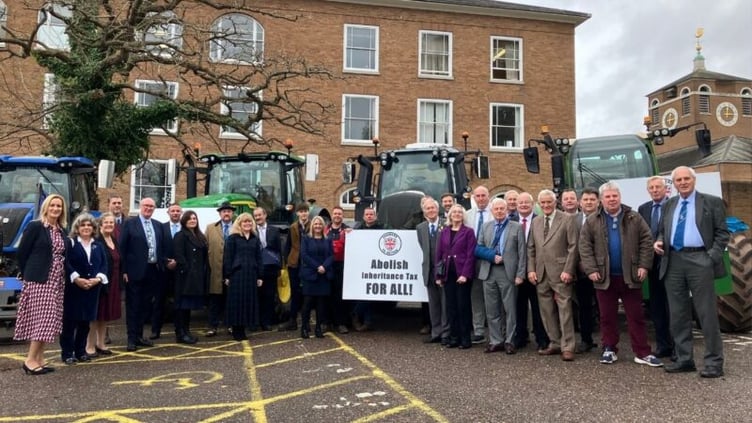The farming sector has been given more than £343m in funding in a bid to boost to Britain’s food security, the government has said.
The cash injection, which includes payments worth a total of £297m to Countryside Stewardship (CS) and Environmental Stewardship (ES) customers, was paid the first week of December and will reportedly benefit more than 31,000 farmers across the country.
CS and ES provide financial incentives to encourage farmers to look after the environment.
The government is also providing more than £5 billion to the farming budget, claiming it is the “largest ever increase investment in sustainable food production in the country’s history”.
A changed Countryside Stewardship Higher Tier (CSHT) scheme, providing new quarterly payments to help farmers’ cashflow, will also be introduced next year.
Environment, food and rural affairs secretary Steve Reed said the measures showed the government’s commitment to farmers was “steadfast”.
He said: “This government is working hard to get money into farmers’ bank accounts as well as announcing today how farmers can benefit from the new CSHT scheme, with more flexible actions, improved payments to help cashflow and a rolling application window.”
The announcement coincides with the latest protests by farmers, who are calling for the government to scrap the proposed ‘family farm tax’, which will see single farm owners with inherited rural assets worth more than £1m liable to a 20 per cent tax bill from April 2026.
Both Devon County Council (DCC) and a number of local MPs have voiced their opposition to the inheritance tax, warning that it will jeopardise food security and impact on farmers’ livelihoods.
In response to the rural boost package announcement, South Devon MP Caroline Voaden told this paper: “While the extra money announced today is welcome, the government still has its head in the sand about the true impact of its changes to APR.
“Today, at PMQs, the Prime Minister insisted only a small number of farms will be impacted by this policy – despite growing evidence to the contrary. And earlier, the Government released a 464 page report on food security without a single mention of its new tax.
“Last month, I surveyed every single farmer in South Devon and the results I received were devastating. 86 per cent of farmers in South Devon believe they’ll be impacted by these tax changes – and while I’m sure they’ll welcome this new funding, the truth is that it will pale in comparison to the worries they have about their farms' long-term viability.”
For his part, DCC leader James McInnes said: “Farming is integral to Devon's economy, and so any investment to support our local farmers is welcome.
“However, the imposition of the inheritance tax is a fundamental threat to the existence of many family farms."
There is no consensus over the number of farmers who will be affected by the tax, but the government is now saying it could be 2,000 estates a year (up from an initial estimate of about 500).





Comments
This article has no comments yet. Be the first to leave a comment.